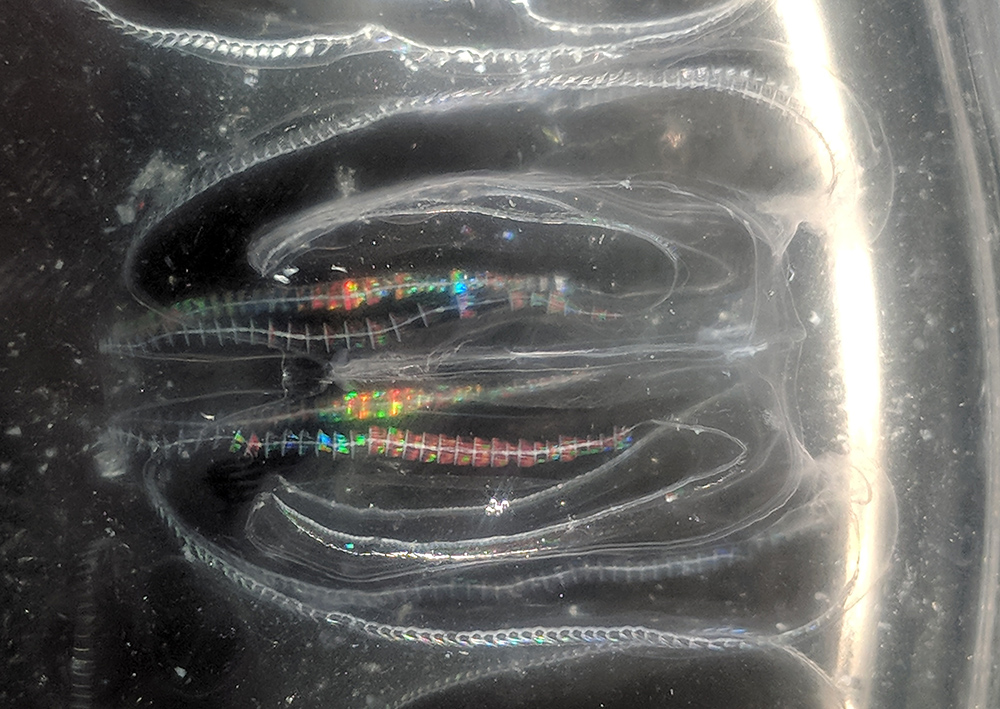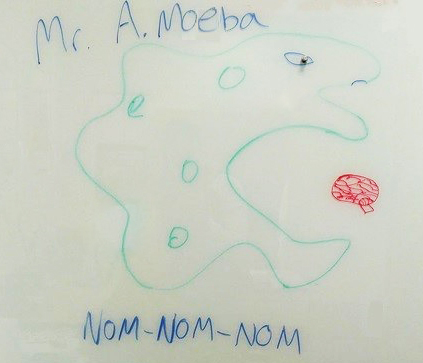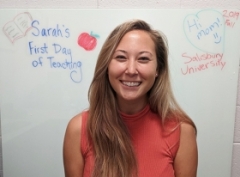Knauss legislative fellowships in Congress help build careers — and they're fun and educational. See our video and fact sheet for details.
The Joys of Being a Teaching Assistant
This is the third semester of my master’s program in biology at Salisbury University, and it has been a long one. On top of completing my final sampling season, taking the last few classes, typing my manuscript, juggling a part-time job, and attempting to have some sort of social life, I also began a teaching assistantship. Not once had being a teacher ever crossed my mind as a potential future job. However, this experience has really opened my eyes to that possibility.
When I heard I was going to be teaching a few Biology 101 labs to nonbiology majors, I thought it would be easy. That thought didn’t last long. As a requirement, we are to sit in on another lab before teaching our new lesson each week. I chose to sit in on a friend of mine’s lab. She made corny jokes and got a giggle and spoke clearly and at a good tempo. Her lab went so smoothly that it gave me confidence. I had my presentation ready, lines rehearsed, and a new shirt and dress pants ready to go. I even took a “first day of school” picture for my mom.
Finally, it was the day of my first lab and I was excited. I sat down in a creaky chair, took attendance and explained the syllabus (real exciting stuff). Then, it was time to give a little background on myself. I had a really cool little video of my organism of interest. I study ctenophores, which are also known as comb jellies. These jellies are interesting because even though they have no stingers, they are carnivorous predators that can compete with fish for food as well as consume their eggs and juveniles. As I concluded my introduction, I made what I thought was a funny closing joke. I was the only one who found it at least chuckle-worthy. So, I checked the time and saw I made it through a little quicker than I was planning. No biggie. Then, it was time to give the presentation for our experiment of the day. Walking around, trying to stay active, I talked about how to test our “brown substance” to see if it was living or nonliving. (Spoiler alert: the “brown substance” was yeast, and we supported that it was living)

A photo of ctenophores in the lab. Courtesy of Sarah Cvach
Overall the experiment went pretty well and I felt confident. I was walking around helping students, standing up front giving examples, and of course making sure we had everything we needed. At the end, we went over some of the main points of the lab. I looked at the clock again. Still early. This timing thing was a lot harder than my friend made it look. Thank goodness there were extra questions in the book to go over. From now on I needed a back-up plan in case we moved quicker than expected.
Finally, class ended and everyone left to go home. Feeling happy and confident, I went back to my car and couldn’t wait to tell my friends how well everything went. It was only then that I realized that the chair had not creaked—that the sound I heard at the beginning of class was the sound of my dress pants ripping. I had gone the entire class not noticing. Thank goodness it seemed that none of the students or people I passed going home had noticed. If they had, someone would have told me or at least laughed and pointed.

A drawing in our TA office of "Mr. A. Moeba" to keep biology fun for the students. Courtesy of Sarah Cvach
The bright side was besides that, the lab went really well and I didn’t have to teach that section again for two weeks because of a holiday. After that, things got less embarrassing, but the work load really sank in. Trying to balance everything with making a new assignment and presentation each week has been a learning curve. However, this experience has really helped me with my public speaking as well as how to convey a topic in different ways. When a lightbulb goes off in a student’s head and they understand and sometimes even get excited it’s a really great feeling. I also now have increasing respect and understanding for how much teachers work and go through. After answering my fourth email about having no class the next week, after I said it at least three times in class and have it posted to our school’s class page, I realized how much patience teaching can take. And I don’t even teach a large class or lecture. Needless to say, thank you to teachers everywhere for getting us to where we are today.
Photo, top left: Sarah Cvach ready for her first day teaching. Credit, Krispen Laird
See all posts to the Fellowship Experiences blog

